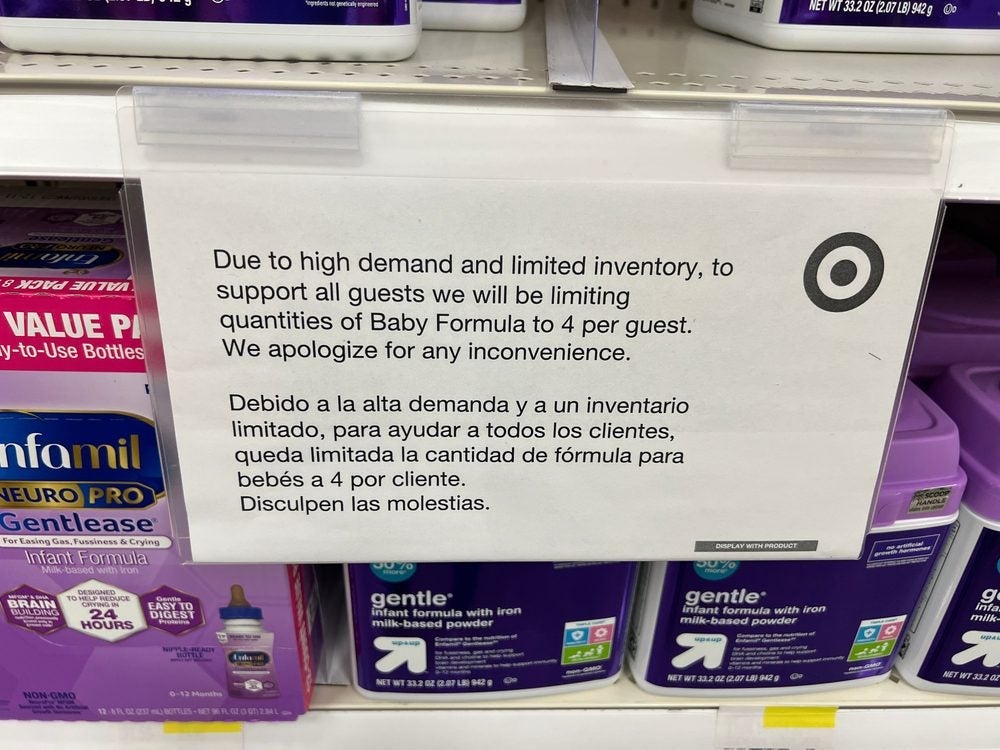AOL Gets TechCrunch
The rumors became reality on Tuesday as AOL acquired TechCrunch for $25 million to $40 million, depending on who you ask. Michael Arrington will stay on board for at least three years. (TechCrunch, VentureBeat)
Developers Like Android’s Future
According to a recent study from Appcelerator and IDC, 72 percent of developers say Android is “best positioned to power a large number and variety of connected devices in the future,” which dwarfed the 25 percent response for iOS. Android tablets are also positioned to receive strong interest from developers. (Appcelerator)
iPad Users Most Likely to Make a Purchase Because of an Ad
Recent figures from Nielsen’s look at connected devices show that iPad users skew younger and male. Also, iPad users are the most receptive to advertising, with 39 percent saying they find the ads on their devices new and interesting, compared to 19 percent of all connected-device owners. Meanwhile, iPad users are also significantly more likely to make a purchase on the Internet, at a store, over the telephone or directly through their connected device than owners of all other devices. (Nielsen)
Don’t Overdo SEO
“Over-optimized” sites tend to have red flags, like keyword-stuffed title elements on every page and URL strings that were too long and rich with keywords. This kind of SEO won’t fly, as search engine are fighting back by making changes and penalizing sites that step over the line. “Under-optimizing” to reach true optimization is something of an art. (SEOmoz)
Online Lead Generation is Still Growing
With the portion of companies that generate leads online with the intention of converting them offline growing, it’s clear that online lead generation is still on the up-and-up. Natural search (SEO/organic) is used by 90 percent of companies to generate consumer leads, followed by e-mail marketing (83 percent) and paid search (73 percent). Social media, of course, has seen a significant rise in use, followed by rich media/video, paid search and natural search. Eighty-five percent say they use e-mail/online transactions to convert leads generated online, followed by 67 percent who use telephone/call centers. (Econsultancy)
Testing E-mail Subject Lines
Your subject line is important. According to Jupiter Research, 35 percent of e-mail users will judge an e-mail message based solely on the subject line. This is why testing subject lines is so crucial. Make them pop, use incentives, brand them and don’t make them too long or too short. (MailerMailer)
Online Retailers See Bigger Sales, Traffic
According to MarketLive, revenue for online retailers is up 23.3 percent from Jan. 1 through Sept. 20, compared to the same period last year. Meanwhile, traffic is up 44.5 percent, with a 55.9 percent increase in the number of carts and a 32.4 percent growth in orders. (MarketLive)
Balancing Entertainment and Message in Online Video Marketing
“The key to creating a video that delivers on both and produces a good ROI is in determining how much of one to keep and how much of the other to sacrifice and determining the right presentation of both.” Three steps toward finding the right balance are: 1) know your audience and aim at a target and send out equal parts message and entertainment value; 2) know who your secondary audience is and ratchet up the entertainment value a bit, but still maintain a strong marketing message; 3) determine how to best combine and present the two elements. (ReelSEO)
Getting Results with PPC Text Ads
Understand that the goal of your ad is not to sell a product – it’s to get a qualified prospect to click through so your site can sell them on your product. Then it’s on to the actual ad, which needs to get the attention of your prospect, interest them in a desire for the product, tease out a desire for the product and demand an action from the prospect. Lastly, keep in mind that words like “discover,” “free,” “guarantee” and “save” are more powerful than others. (Search Engine Guide)
New Ad Formats
AOL announced that seven brands have agreed to be founding partners for its new display advertising format, affectionately called “Project Devil.” It offers a large ad space divided into interactive panels, which allows advertisers to present different functionalities within one unit. Meanwhile, the IAB is calling on advertisers, publishers and others to propose new ad units by Nov. 15. (WebProNews, ClickZ)
Which Apps Rich People Download and Use
According to the Luxury Institute’s “Wealth Report” for September, 58 percent of affluent smart-phone users download weather-related apps, followed by 53 percent who download news apps, 50 percent who download games, 40 percent who download travel apps, 39 percent who download business and finance apps, 35 percent who download music apps and 31 percent who download sports news and scores apps. Weather apps, news and finance apps, and Facebook apps are the most frequently used by affluent smart-phone users. (eMarketer)
BlackBerry’s New PlayBook
BlackBerry unveiled its touch-screen tablet yesterday. Among the interesting features are the front- and rear-facing HD cameras. Augmented-reality possibilities abound. (ReadWriteWeb)
David Ogilvy’s 7 Tips for Writing Copy that Sells
“The Father of Advertising” has words that are still very relevant today. If you’re looking to improve your copy, take heed of these seven tips: 1) go big or go home, 2) do your homework, 3) never talk down to your customers, 4) the headline is 80 percent, 5) don’t get distracted from making the sale, 6) explain why they should buy, and 7) your copy is important, so treat it that way. (KISSmetrics)
Mobile Search Behavior Should Influence Design and SEO
The differences between mobile search behavior and desktop search behavior can be easily seen when looking at log file data, usability testing and diary research. For mobile searchers, context matters a lot, especially location and time limitations, so when optimizing for mobile search queries, make sure to include directions, business hours and quick facts on your site and local search listings. Though it’s obvious, remember that mobile searchers have a much smaller screen to look at. Allow this fact to help you improve your site’s design. (Search Engine Land)
Verizon Invests in Location-Based Mobile Platform
Verizon is delving deeper into mobile commerce and location-based apps with its recent investment in Geodelic. This follows its $400,000 investment in CardStar’s mobile loyalty management platform. (Mashable)
Mobile Usability
Here’s a roundup of seven helpful Slideshare presentations about mobile usability. (Econsultancy)
Improving CTR
Identifying the problem, targeting the right keywords, and creating better targeted and creative ads are ways to improve the all-important click-through rate. What’s a good CTR? It depends on the campaign. Also, a high CTR isn’t always a good thing, especially when your spend is increasing while your conversions are not. Google Instant might push down CTRs, but we’ll have to wait and see what happens. (PPC Hero)
10 Social Media Mistakes
With so many companies diving headlong into social media, there are bound to be some common mistakes. Among them are running your company’s social network like a traditional business, failing to find ways to encourage and inspire your company’s followers and fans, delaying the process of going social, and not getting the partners to help you succeed. (Business Insider)
Nielsen Testing New Ad Metric
Nielsen is planning to unveil a new service that would give advertisers and Web publishers new data to improve audience measurement for online advertising, akin to what the company is doing with TV ratings. Facebook is one of the big participants already lined up for the service, which will present Gross Rating Points (GRP). “Media buyers say having an online GRP has the potential to give marketers a way to do apple-to-apple comparisons of media.” (WSJ.com)
Is Facebook Making a Phone or Not?
According to a TechCrunch interview with Mark Zuckerberg, Facebook appears to be eyeing Android as their OS of choice, thanks to its more open nature. However, a Bloomberg report says that Facebook is working with INQ Mobile, a mobile phone maker, to create two smart phones that will highlight the core functionalities of the social network. (TechCrunch, CNET)
4 Tips for Facebook Advertising
Best practices for the young platform are hard to come by, so here are some early thoughts on what may be working best so far: 1) cross-reference targeting options when reporting; 2) use search marketers to run your campaign; 3) constantly rotate and test ad creative; and 4) treat Facebook as an extension of your search marketing campaign. (Econsultancy)
Facebook: The Ultimate Advertising Giant
Not since Google have we seen an advertising giant with this much heft. With Facebook’s “socialness,” ads have the chance to be thrown right into the stream of interactions and conversations. Those easy-to-ignore ads on the right sidebar? That’s just the beginning. With all Facebook “knows” about you from your status updates, etc., it can deliver ads that are targeted better than Google’s are. And the future doesn’t have to be confined to Facebook.com – the whole Web can benefit from its targeting powers, thanks in part to the “like” buttons that have spread across Web pages. (BusinessWeek)
Ranking the Most Influential Tweeters
Researchers at Northwestern University have conjured up a way to rank the most influential tweeters, and Ashton Kutcher might not be one of them. It’s not all about the number of followers you boast. The site, www.pulseofthetweeters.com, tries to determine if tweets are positive, negative or neutral, and filters out spam. “Our premise is that influencers are those that dynamically change the opinions of people on specific topics, or the topic of the moment. So in real time we can determine how people are getting influenced for an important topic,” one of the professors who is part of the project said. (NYTimes.com)
Google Chrome Preps Web Store
Google’s Chrome Web Store is expected to launch soon. Developers can already connect their apps to Google Checkout merchant accounts, and are able to see a preview of what their app will look like in the store when it goes live. (TechCrunch)
Google New
Google has taken it upon itself to offer a one-stop destination aggregating all the latest news about Google from various Google blogs. (TechCrunch)
Apps Don’t Help Smart Phone Sales
According to a study from Deloitte, 58 percent of consumers say a smart phone’s size, quality, keyboard style and price are aspects of their purchase decisions, while just 18 percent said mobile apps are factors in which smart phone they eventually buy. However, 42 percent of mobile app users say they “have reduced or completely eliminated their use of MP3 players.” (CNET)
Dear Mike Arrington…
Dave McClure responds to Mike Arrington’s “conspiracy theory” that a meeting of super angels involved collusion. It’s colorful (literally and figuratively). He also touches upon various other topics. (Master of 500 Hats)
Google Instant Isn’t that Big of a Deal
According to this in-depth analysis, Google Instant means even fewer changes to SEO than the average algorithm update. Visits by search term length, referring keyword analysis and traffic from Google all show that Google Instant hasn’t rocked the boat all that hard. (SEOmoz)
What to Do About Poor Landing Pages
Here’s a look at some landing pages, which serve as examples of what’s right and wrong. Some takeaways are that even pages you created can be improved (number of fields, clearly presented benefits), be a consumer and learn from your experiences, and show your visitors you care. (PPC Hero)
Retargeting Lifts the Most
A study from comScore and ValueClick Media shows that of all the media placement strategies, retargeting provides the most lift (1,046 percent), followed by audience targeting (514 percent) and premium pricing (300 percent). Synergy was observed among campaigns that used multiple placement strategies, with those using three or more strategies disproportionately outperforming the norm. (comScore)
 Network
Network

